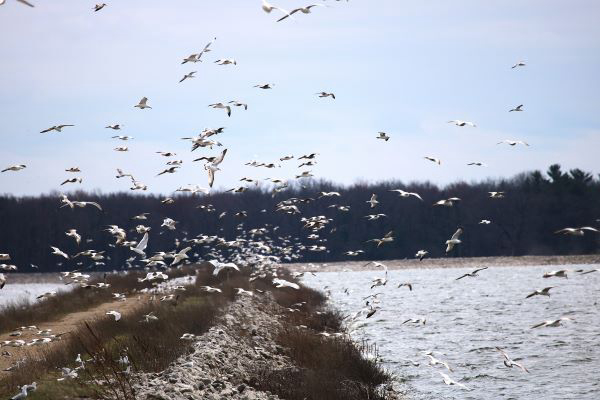DNR ice storm cleanup updates: State parks, trails, campgrounds and boating access sites
April 10, 2025
Following severe ice storms in northern Michigan, Department of Natural Resources staff members are assessing damage and conducting cleanup at several state parks, state park campgrounds, state forest campgrounds, boating access sites and state-managed trails.
DNR crews are also collaborating with local agencies and utility companies to clear debris, prioritize the restoration of essential services and ensure access to critical infrastructure. Much of the work is being coordinated with the Michigan Army National Guard.
Gov. Gretchen Whitmer declared a 12-county disaster area last week, which includes Alcona, Alpena, Antrim, Charlevoix, Cheboygan, Crawford, Emmet, Mackinac, Montmorency, Oscoda, Otsego and Presque Isle counties.
As a result, the DNR temporarily closed several state parks, state park campgrounds, state forest campgrounds, boating access sites and state-managed trails until safe access can be restored, including hazardous tree assessment and removal. Read more





